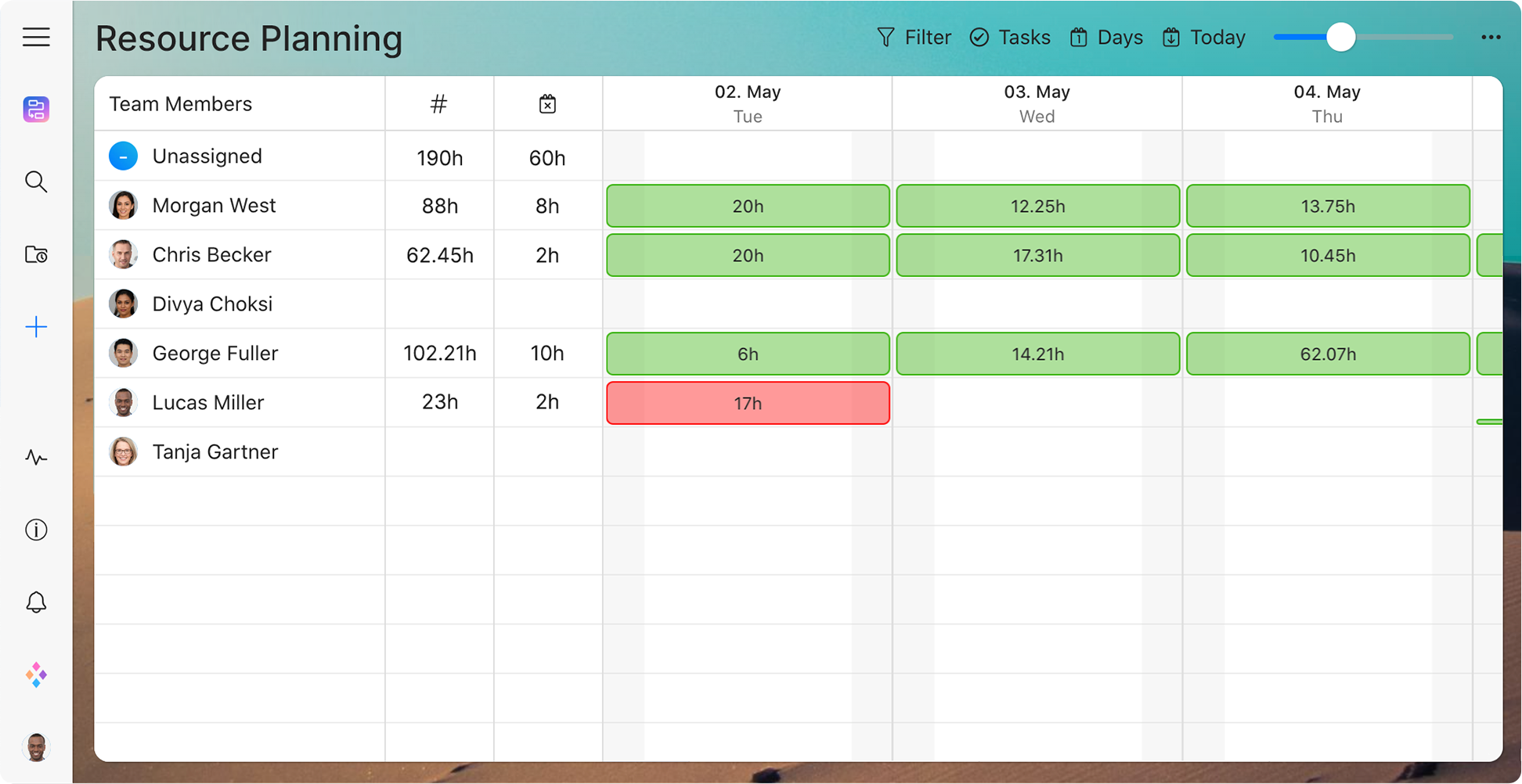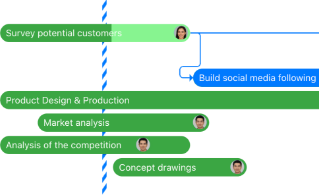Why You Should Be Time Blocking and Not Just Writing To-Do Lists
How to stop distraction and get things done

Much has been written on this blog about how to be productive, how to manage your tasks, and techniques for clarifying what your tasks actually are… But we haven’t spent much time on the best way to actually tackle those tasks! Today is that day.

What’s Time Blocking?
Time blocking is the practice of scheduling certain periods of time in which to tackle specific tasks. Essentially, you schedule your tasks and to-dos for the day (or week), and stick to that schedule. During these time blocks, you focus on only one project or task at a time.
The key word here is focus. This doesn’t work if you allow any interruptions or distractions. And this is something anyone can do — yes, even if you work in a super busy open office, or you’re expected to answer whenever anyone messages you.
Why We Should Time-Block
Cal Newport, an Associate Professor of computer science at Georgetown University and author of the wildly popular “Deep Work”, argues that time away from distraction is necessary to enter a state of deep work. A state in which you can really focus on a cognitively demanding task (like writing, coding, problem-solving..).
Many great thinkers shut themselves off from society when they needed to focus or meet a tough deadline. J.K. Rowling would rent a hotel room, Carl Jung built a tower in the woods to get away. Cutting out worldly distractions is nothing new. The main issue is that many of us seem to have lost the ability to cut out distractions and simply focus.
If you, like many of us, do creative or knowledge work that requires you to produce high-value work regularly, then you likely already know how precious a few interruption-free hours can be. But humans are social creatures. We like to respond to messages and participate in the conversations around us. Time-blocking gives you “permission” to ignore those conversations and messages for a period of time in order to get down to work.
Quality = Time x Focus
As Cal stated in an interview with FastCompany, “high-quality work produced is a function of two things — the amount of time you spend on the work and the intensity of your focus during this time. If you can increase your focus, you’ll get more done in less time.”
Increased focus necessarily precludes constant interruption and distraction. According to Gloria Mark, a researcher in the field of interruption science, “the average knowledge worker switches tasks every three minutes, and, once distracted, a worker can take nearly a half-hour to resume the original task”.

That’s 30 minutes wasted. Because you checked your email or responded to a message. 30 whole minutes! Now think for a minute about how often you’re interrupted by the ping of an incoming message, or a coworker coming over to chat, or that desire to just quickly check your email. Think about how much more you could achieve if you had spent those 30 minutes focusing on your task. Exactly.
(No wonder the average person only actually works for 3 out of the 8 hours of their work day.)
Now, while we can’t all afford to drop off the grid completely every time we want to get some work done, there are lots of things you can do to carve out time to focus. Here’s where time blocking comes in.
“I take time blocking seriously, dedicating ten to twenty minutes every evening to building my schedule for the next day… My goal is to make sure progress is being made on the right things at the right pace for the relevant deadlines.” — Cal Newport
How to Time-Block

It’s really pretty simple:
- Start with a page out of a notebook, a calendar, app, or tool like Zenkit (I use Zenkit synced with Google Calendar).
- Block off chunks of time for certain activities. Make sure to leave a little buffer time, just in case.
- Voila! You’re done!
Tips to Help You Make the Most of Your Time Blocks
You need to be strict with yourself and with others. No distractions mean no distractions. Nope, not even checking your phone. Put it on silent and shut it away in a drawer if you need to! (Remember that 30 minutes from earlier?)
You can schedule blocks to be as long or as short as you like, and you can be as specific or as non-specific as you like. If you want, you can just set aside 3 hours for ‘deep work’, then define what tasks you’ll take on in block closer to the time. Or just leave it open to work on whatever your attention is drawn to at the time. Just remember to always plan in a buffer — things usually take longer than you expect!
You can combine time blocking with a few of the productivity tips we’ve covered before. You could use GTD to figure out what it is you really need to do during your blocks. If it works for you, you could use the Pomodoro technique to chunk your time inside your blocks.

Manage your time blocks seamlessly.
Sign up for free today!
Lastly, don’t overschedule yourself! You’re human. Don’t block in 12-hour days — rest and relaxation are just as important as working hard. The old adage “work hard, play hard” still applies. Make sure to schedule breaks for yourself, and be flexible enough to realize when you’re not feeling up to a certain task.

Despite understanding the benefits of getting a few solid hours of time to focus, it’s easy to come up with reasons why you just ‘can’t’.
But I work in an open office and people stop by all the time!
Invest in some good headphones. Book a conference room. Find a quiet corner of the cafeteria. Set up a little sign on your desk telling people that you’re focusing and would appreciate their understanding. Do whatever it takes!
If you know that you’re likely to be distracted at certain times more than others, then you could even schedule that time to tackle easier tasks as productivity writer, Jill Duffy points out. Using an “if I’m not dealing with an interruption, then I should…” format to schedule these blocks would work well.
What if answering messages and calls is part of your job?
Reactive work, like answering emails and dealing with Slack messages can be scheduled just like everything else. Set up a block of time where you answer emails and other messages. Communicate this time block to your colleagues, and add the info to your email signature or your voicemail. Eventually, they’ll get used to it and appreciate knowing when they can expect an answer.
For example, in my position here at Zenkit, I’m responsible for communicating with our users and providing support. I usually block off an hour or two each morning to deal with this, and then the rest of the day is blocked to focus on other areas of my job (like writing these blogs!)
What if you’re expected to be available at all times?
The pressure to answer immediately these days is real. You may think that being able to block serious chunks of time is a luxury you can’t afford. You’re expected to answer on Slack, keep an eye on emails, or pick up the phone when it rings. So what can you do?
The best thing to do in a situation like this is to speak to your manager. Explain what you’re trying to do and why. Perhaps even frame it in terms of how your increased productivity is ultimately beneficial for the company. Request being able to trial it for a few weeks and check in with your managers every so often to report on progress. Maybe it’ll inspire them to change their ‘always online’ policy!
Productivity for Happiness
During research for his book, Cal Newport found that a side effect of setting out distinct time periods to focus on was that people were actually happier. Not only were they more productive, but they felt better about the work they were doing, and were more satisfied with their jobs overall.
I think we can all relate to that. We all know how overwhelmed and scattered you feel on days where things are thrown at you from a million different directions and you’re just reacting instead of actively focusing on your tasks. It doesn’t feel good and you often leave the office with your unfinished work running through your head.

When you’re in a deep work state, you get lots of stuff done. You can focus. You may even enter a ‘flow’ state (we’ll come back to this in another blog!). You can take advantage of those pure hours to finish up your projects and leave your work day with a sense of closure.
And that means you can really take advantage of your free time — your life outside of work. Isn’t that ultimately what this is all for? You should work to live, not live to work. Being focused helps you be more productive and enjoy your work better so that you’re free to enjoy what really matters.
Cheers,
Siobhan and the Zenkit Team
FREE 20 MIN. CONSULTATION WITH A PROJECT MANAGEMENT EXPERT
Wanna see how to simplify your workflow with Zenkit in less than a day?
Book a Live Demo